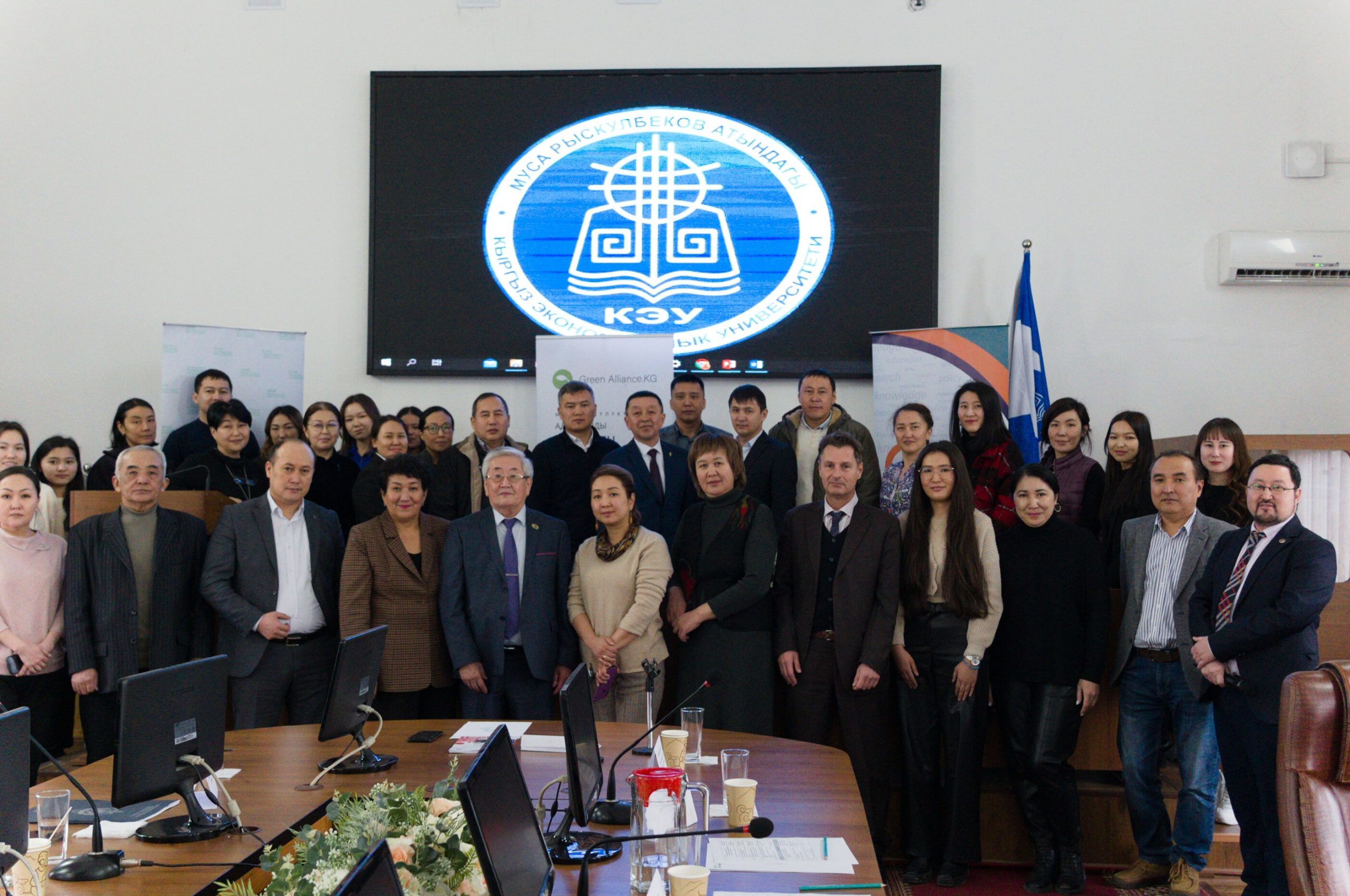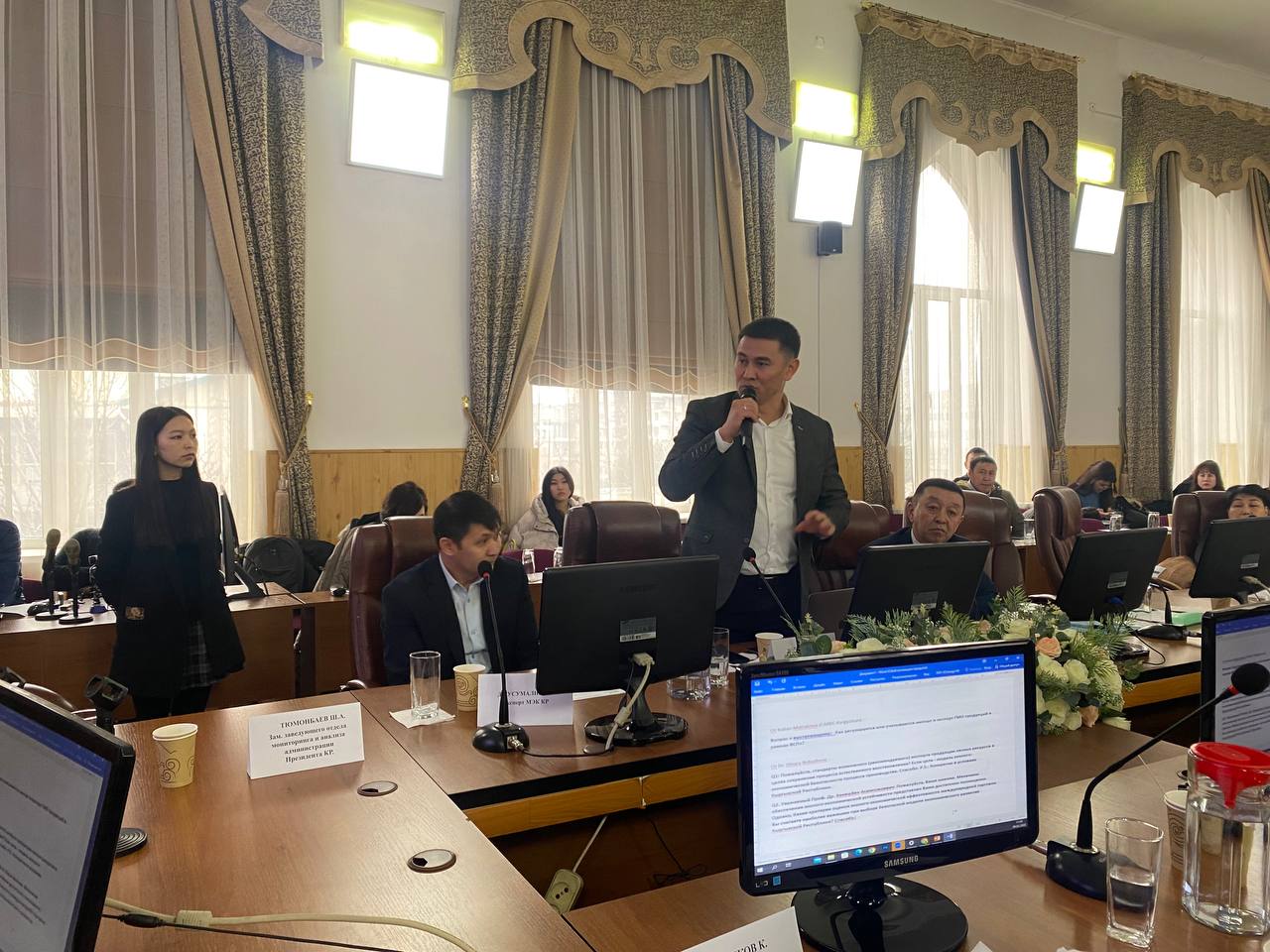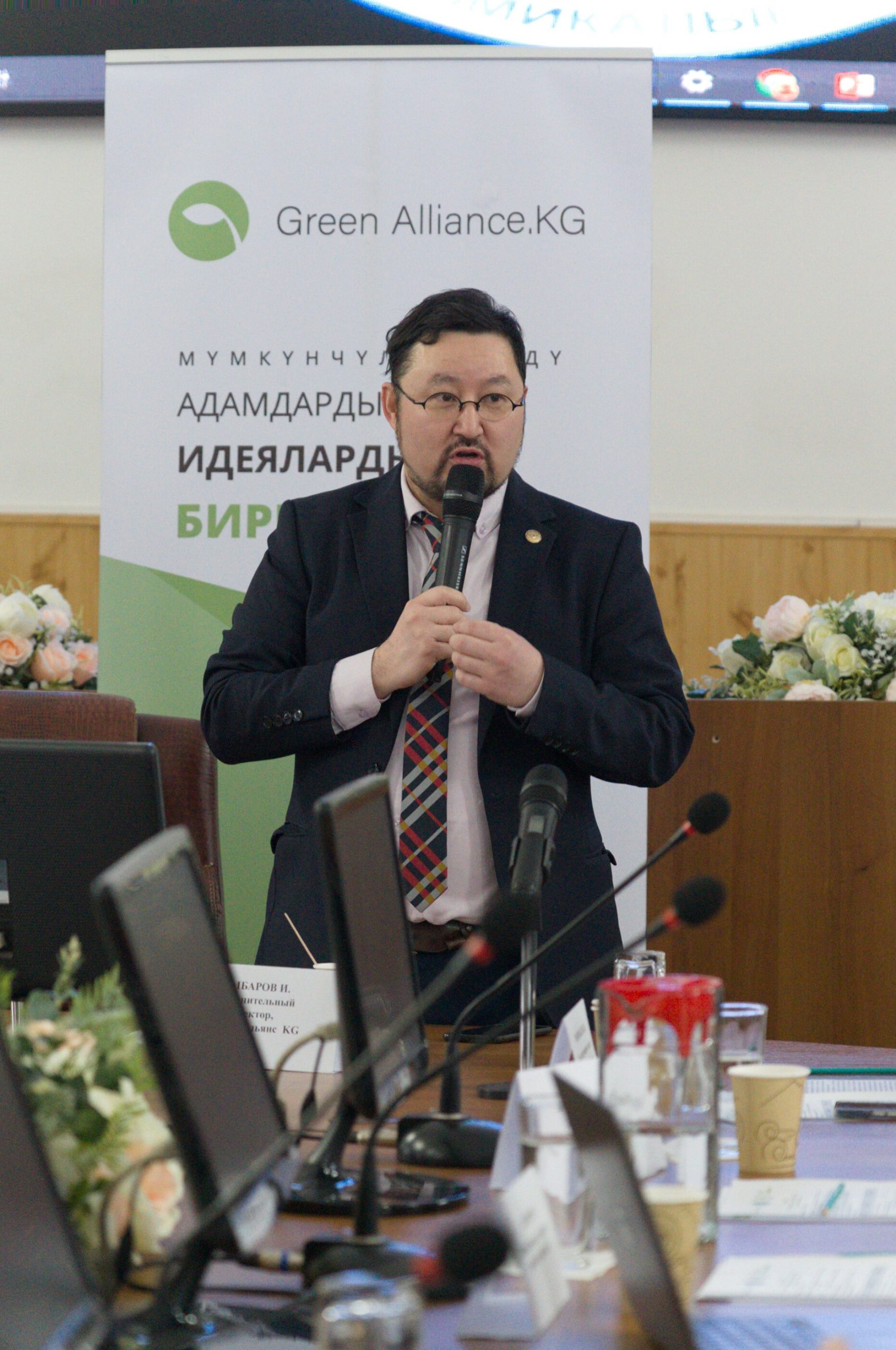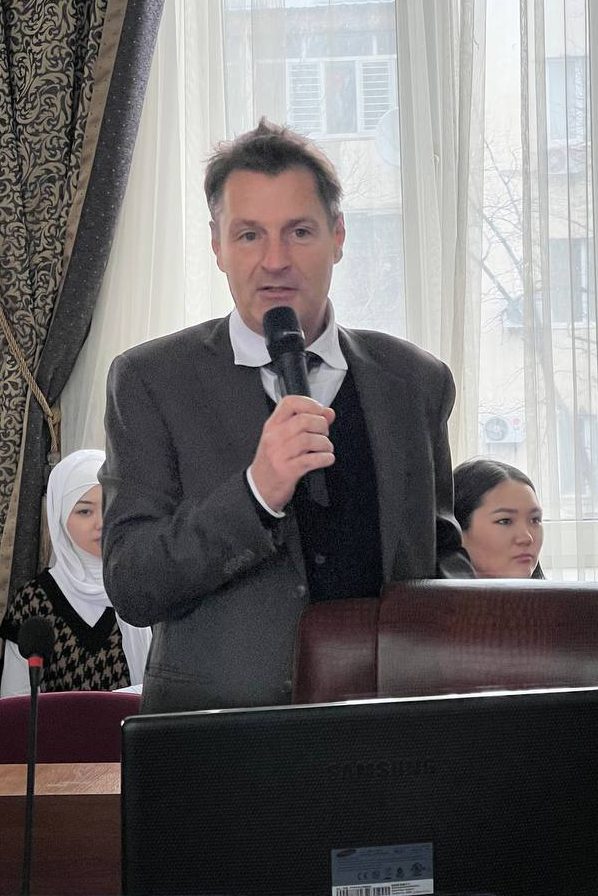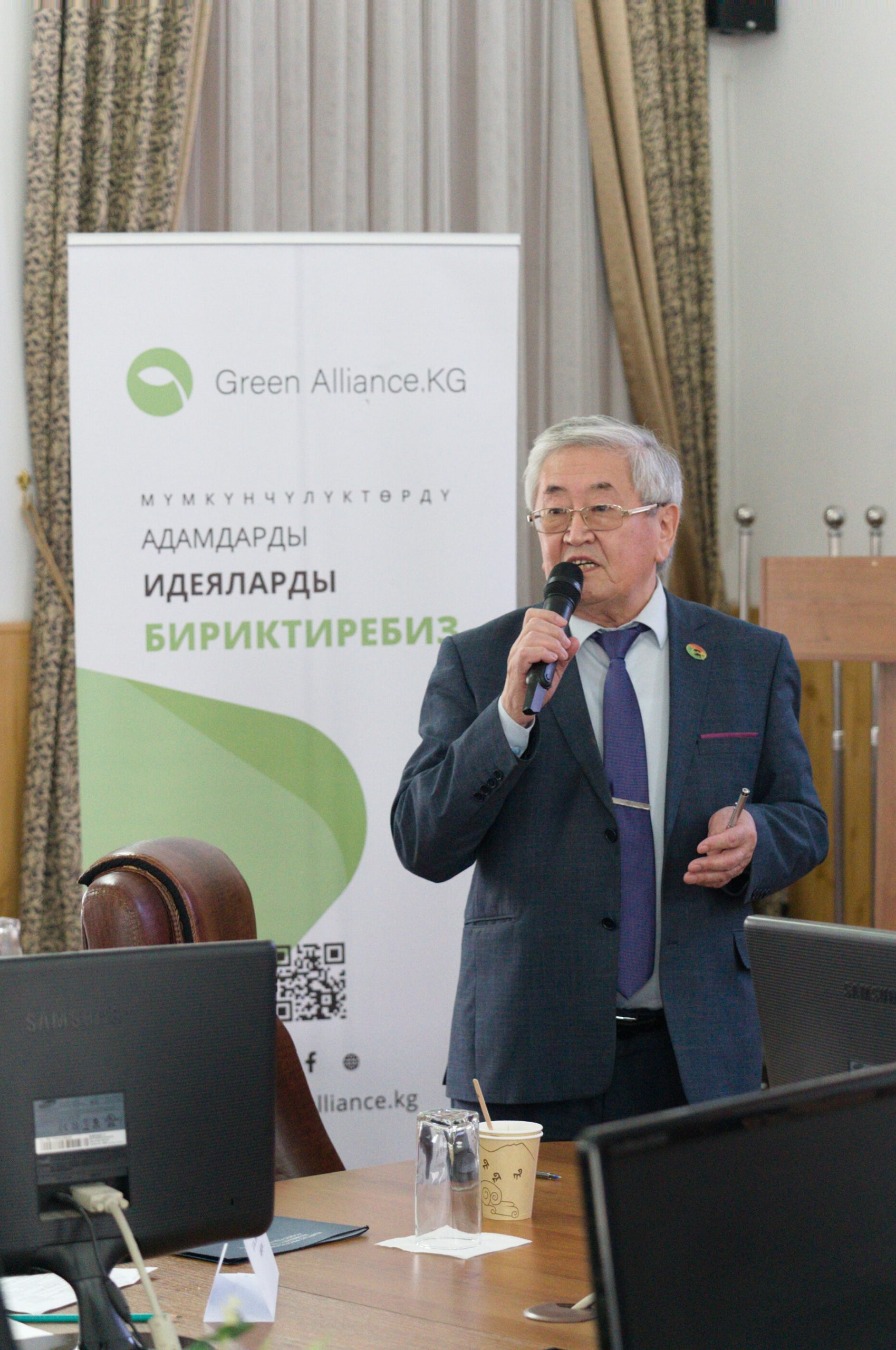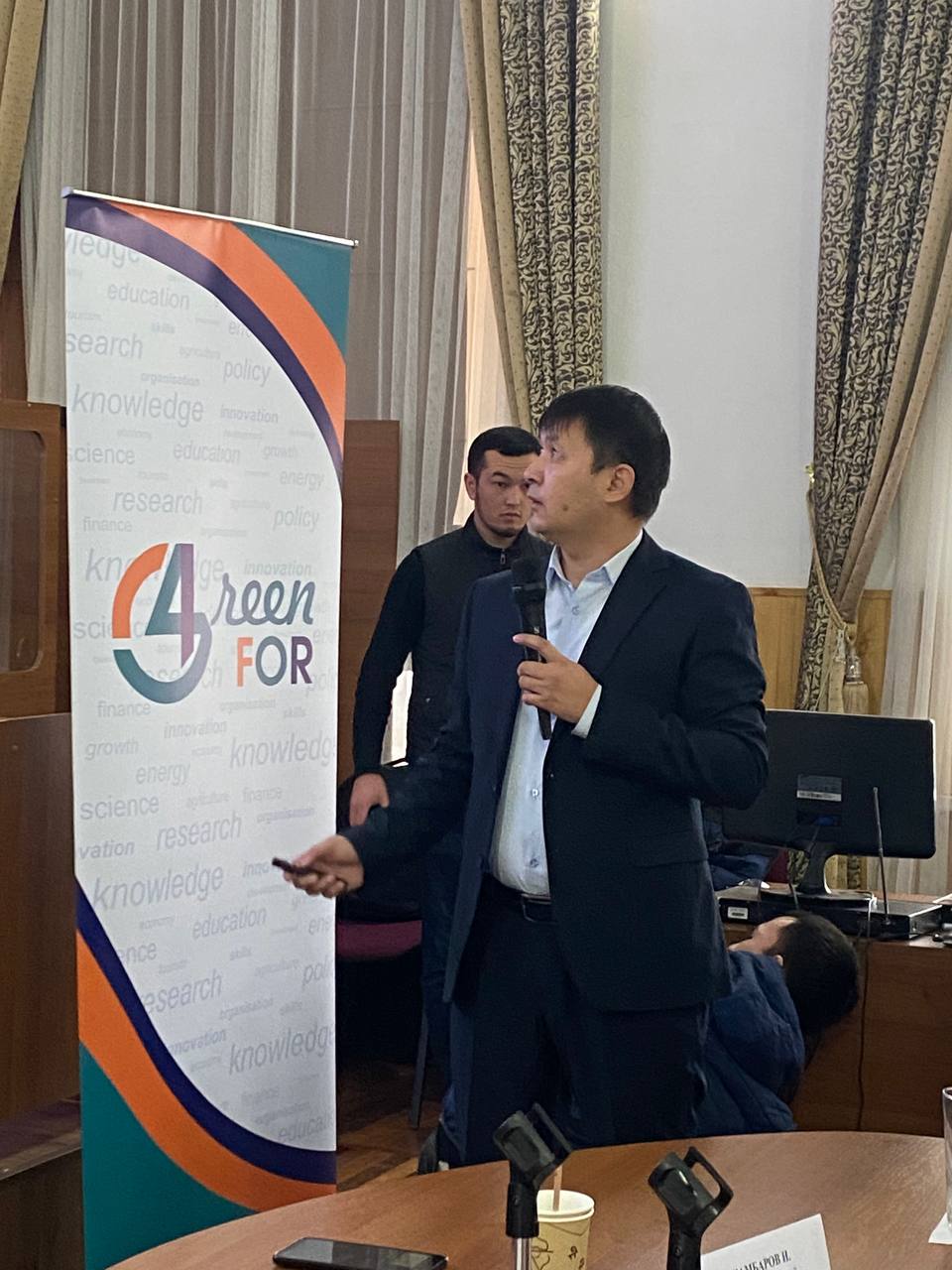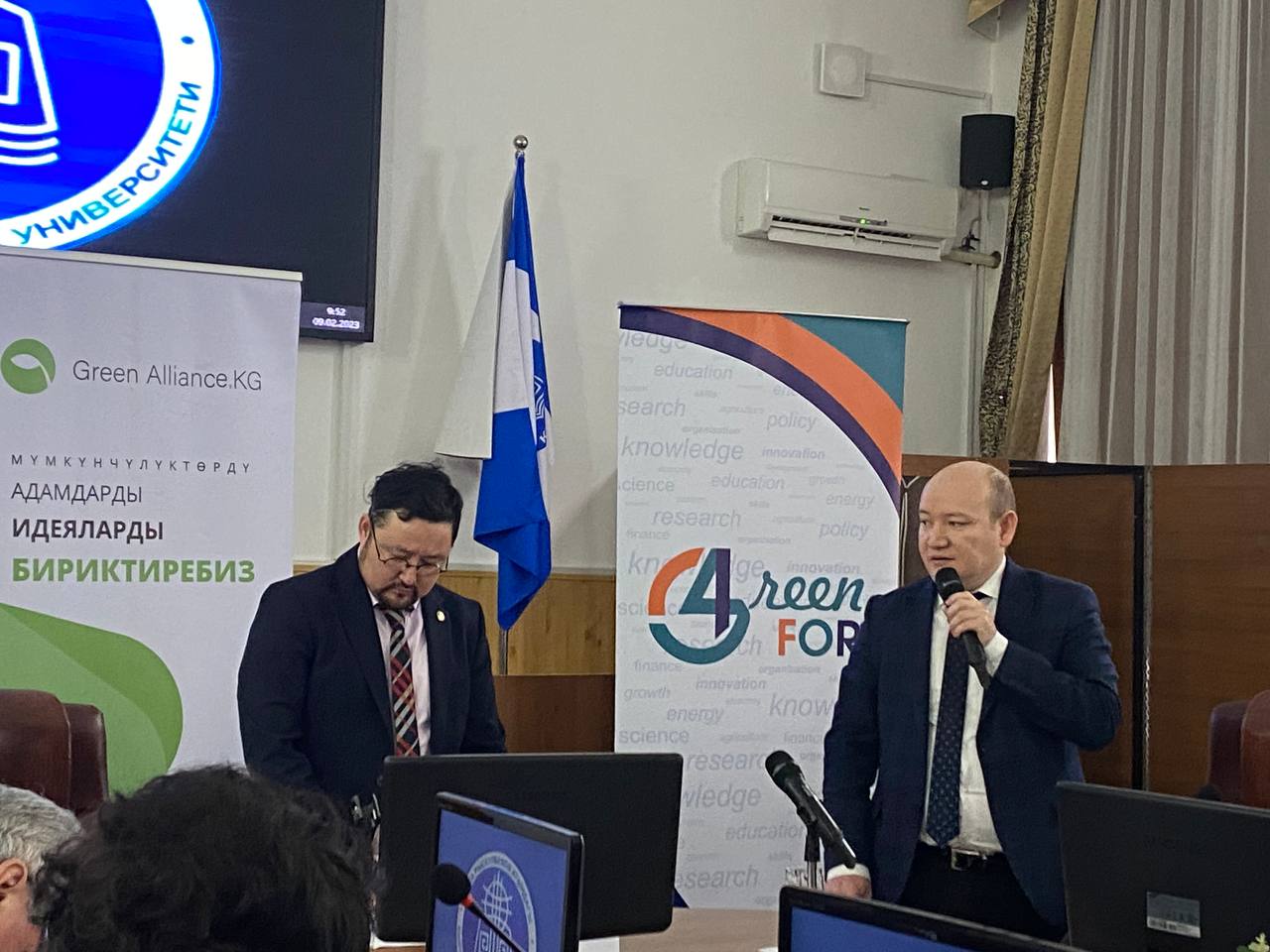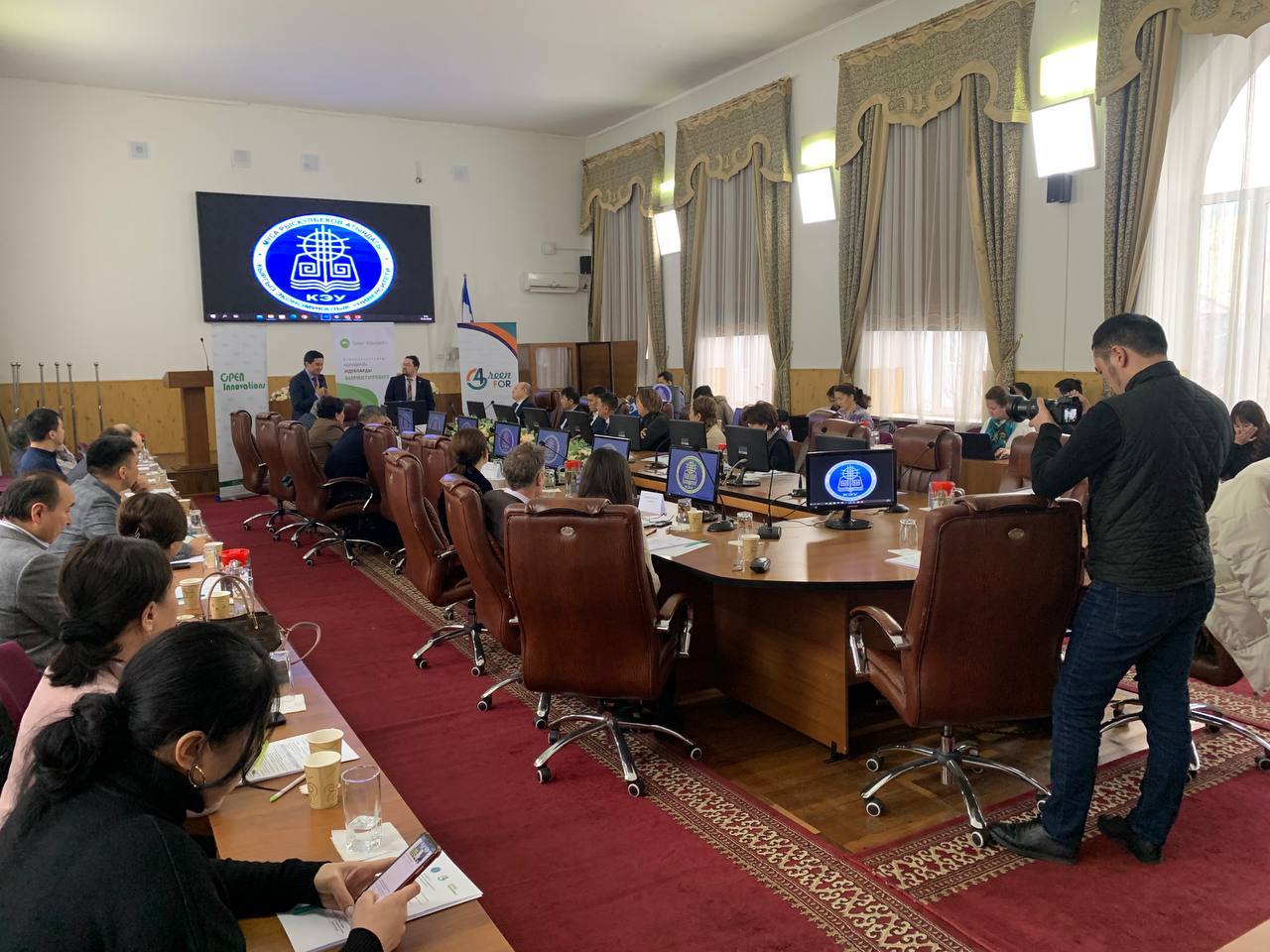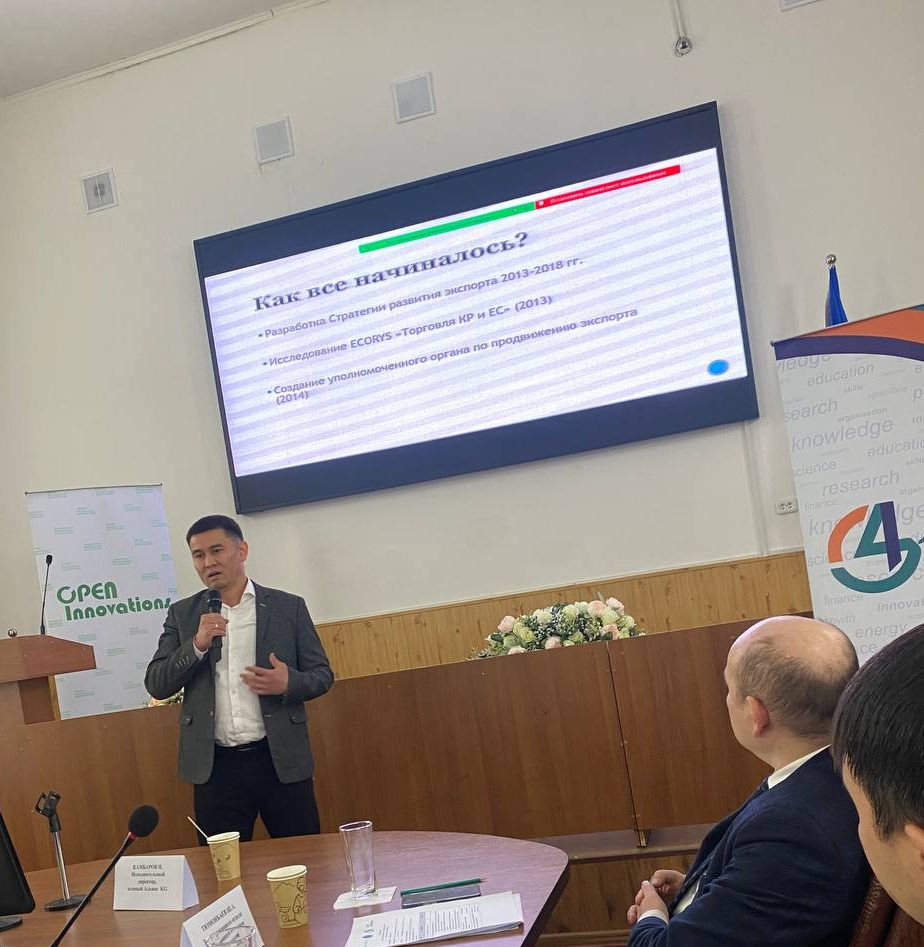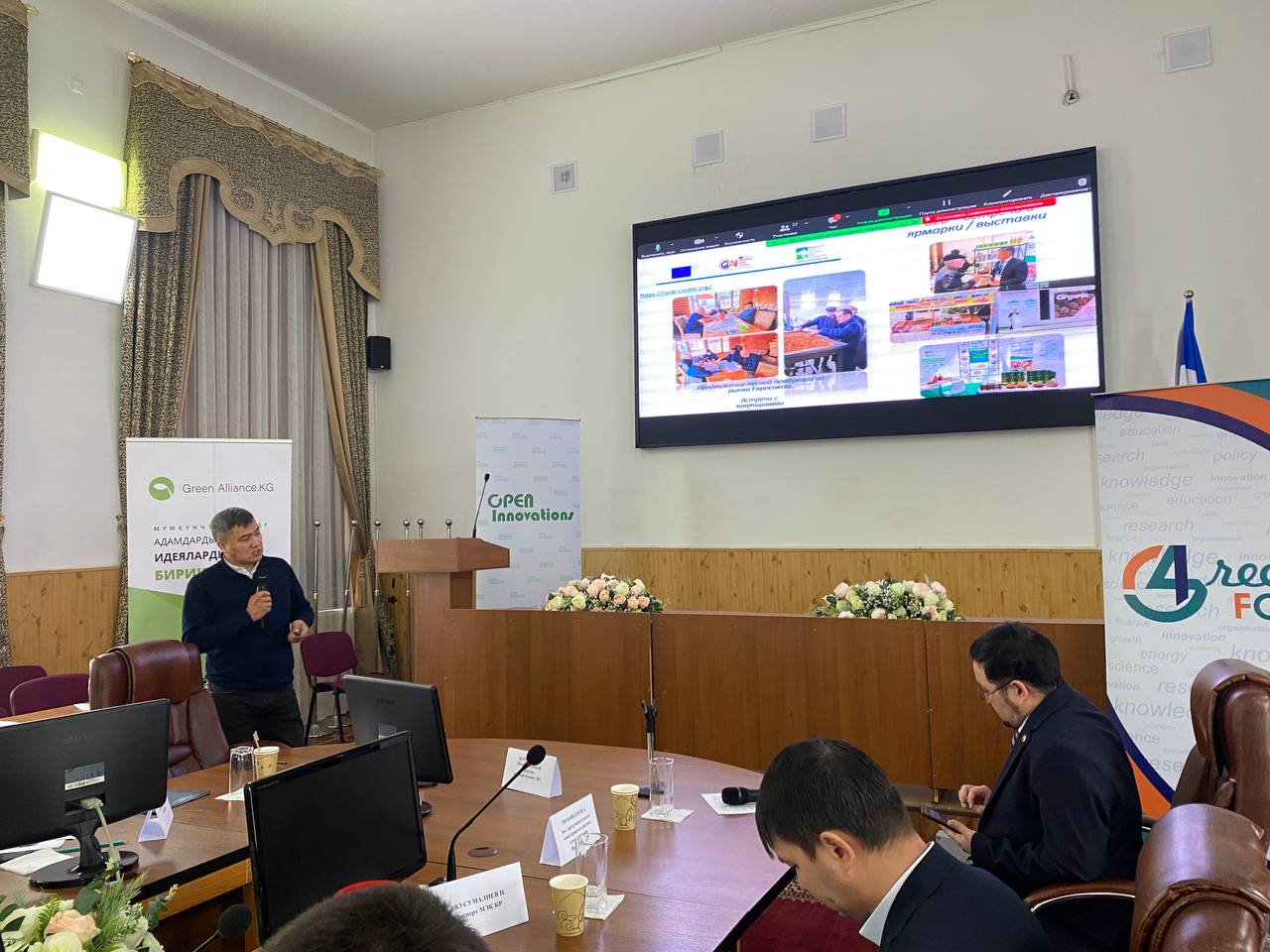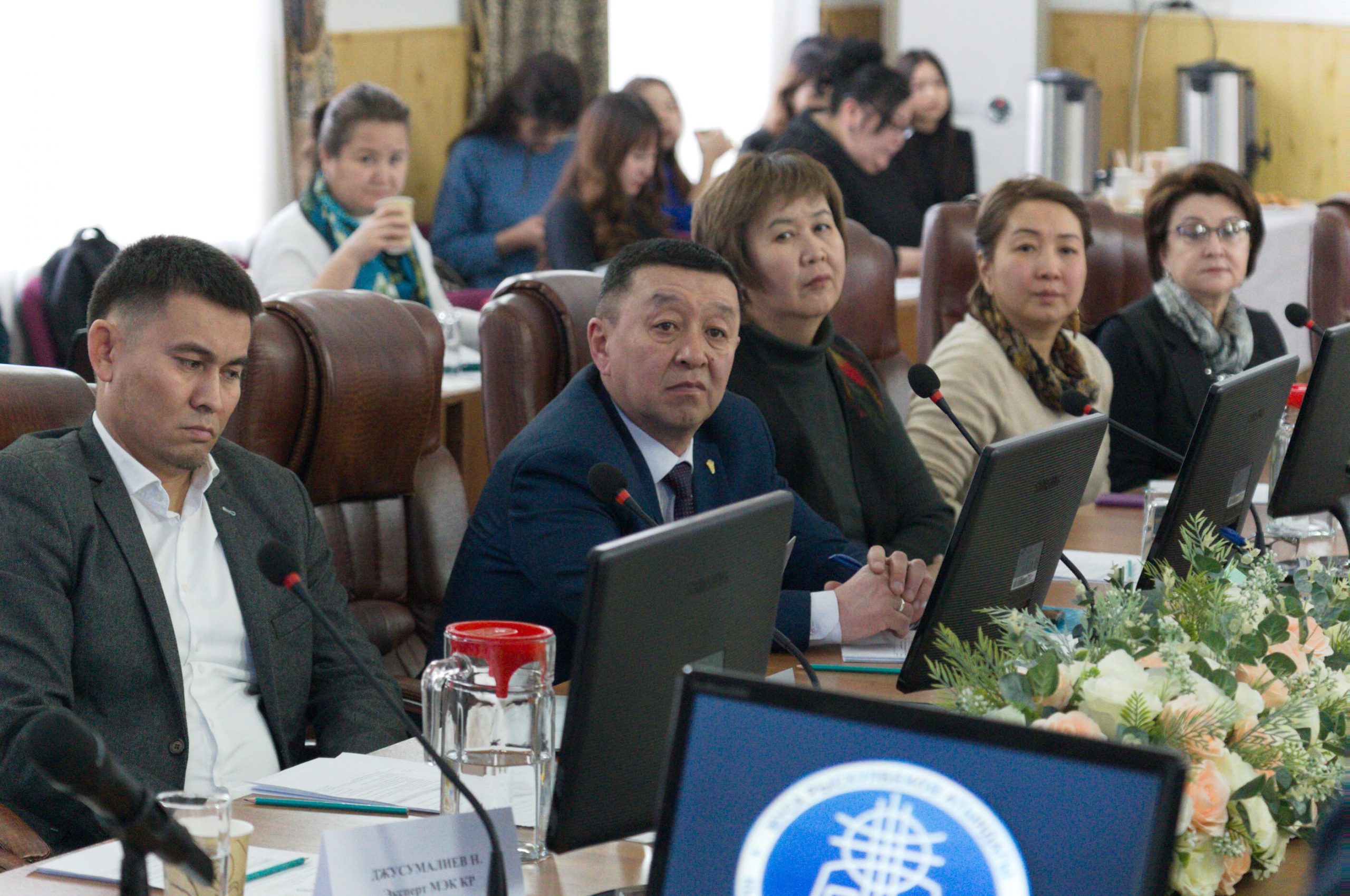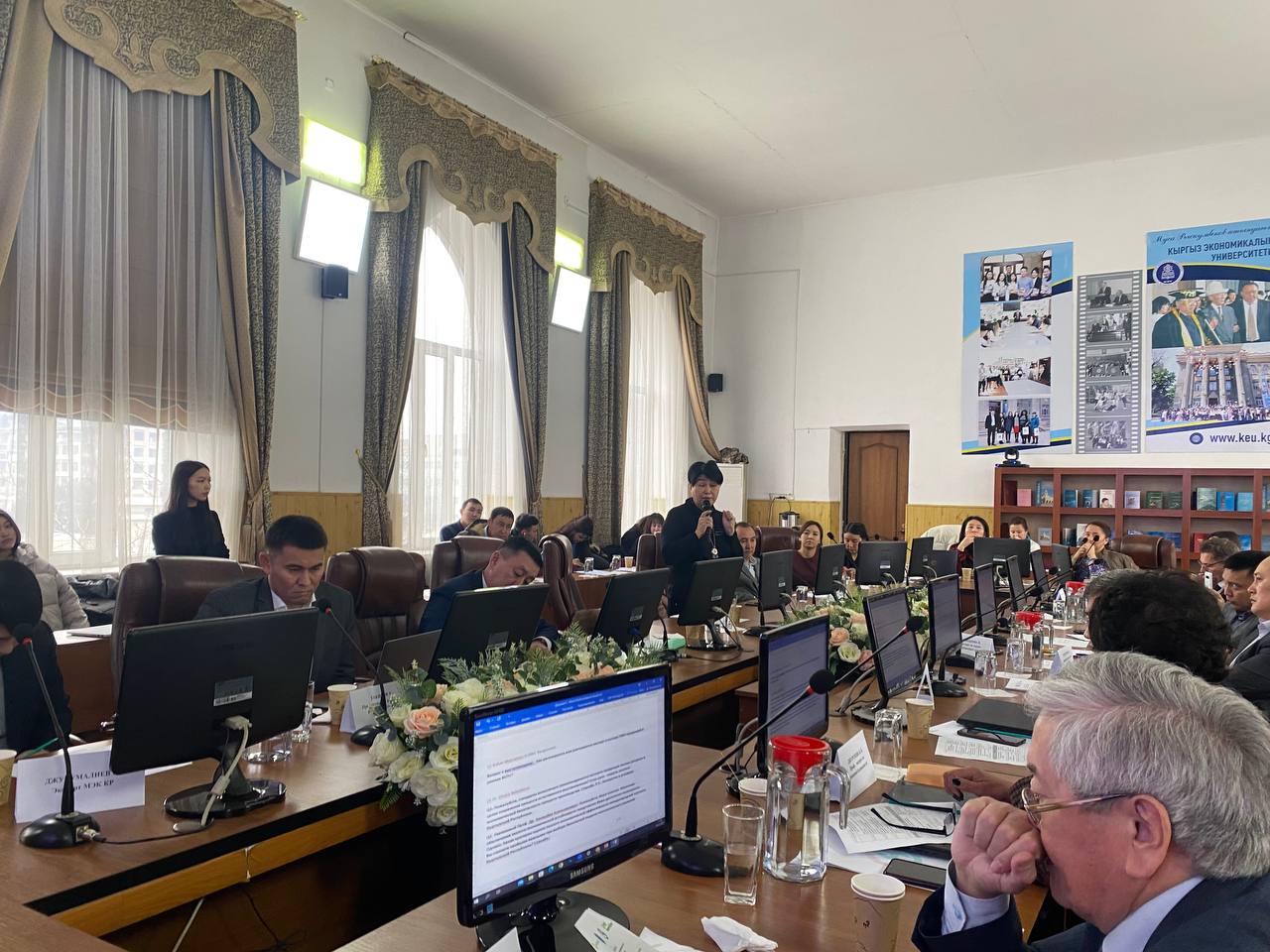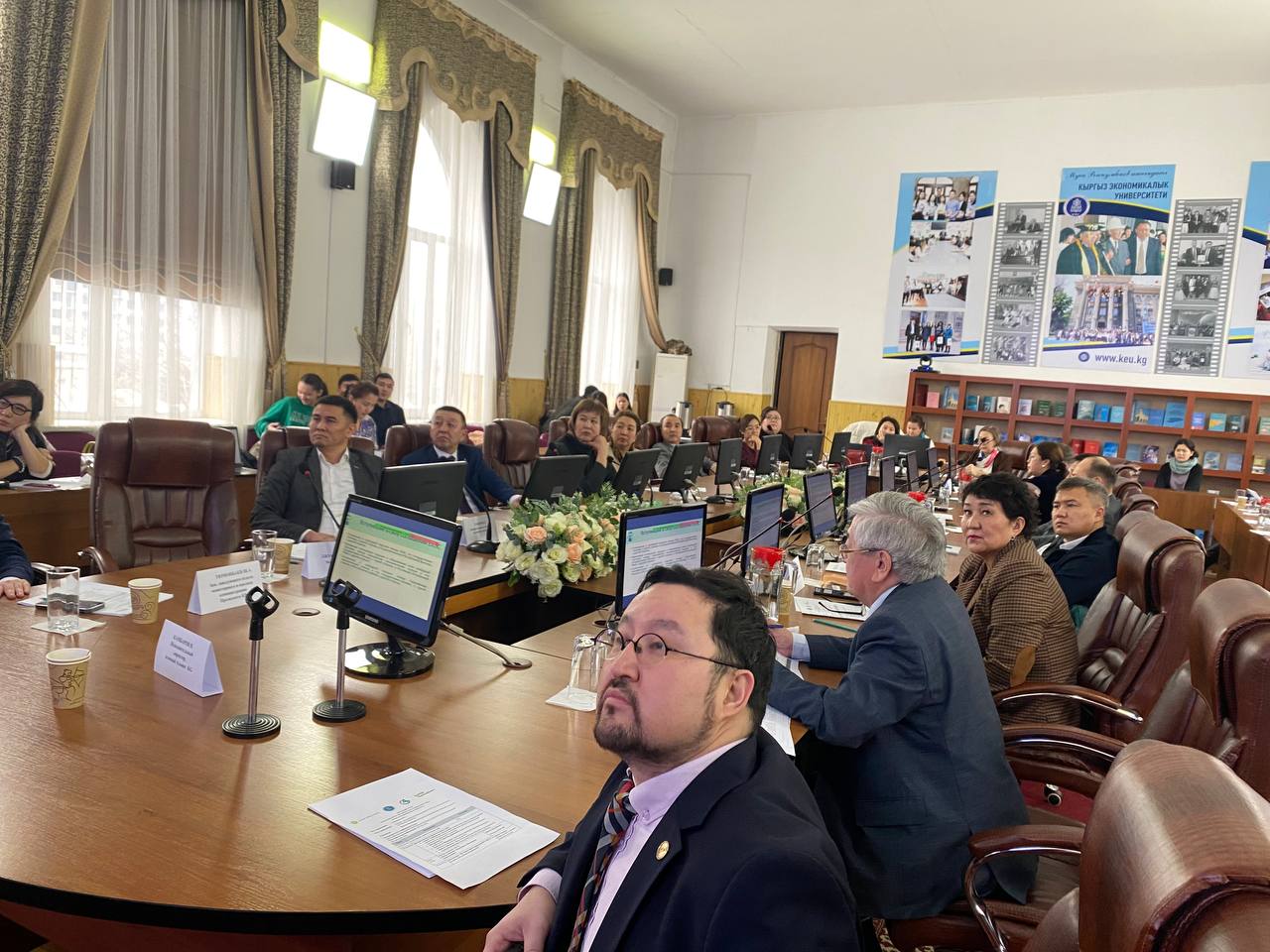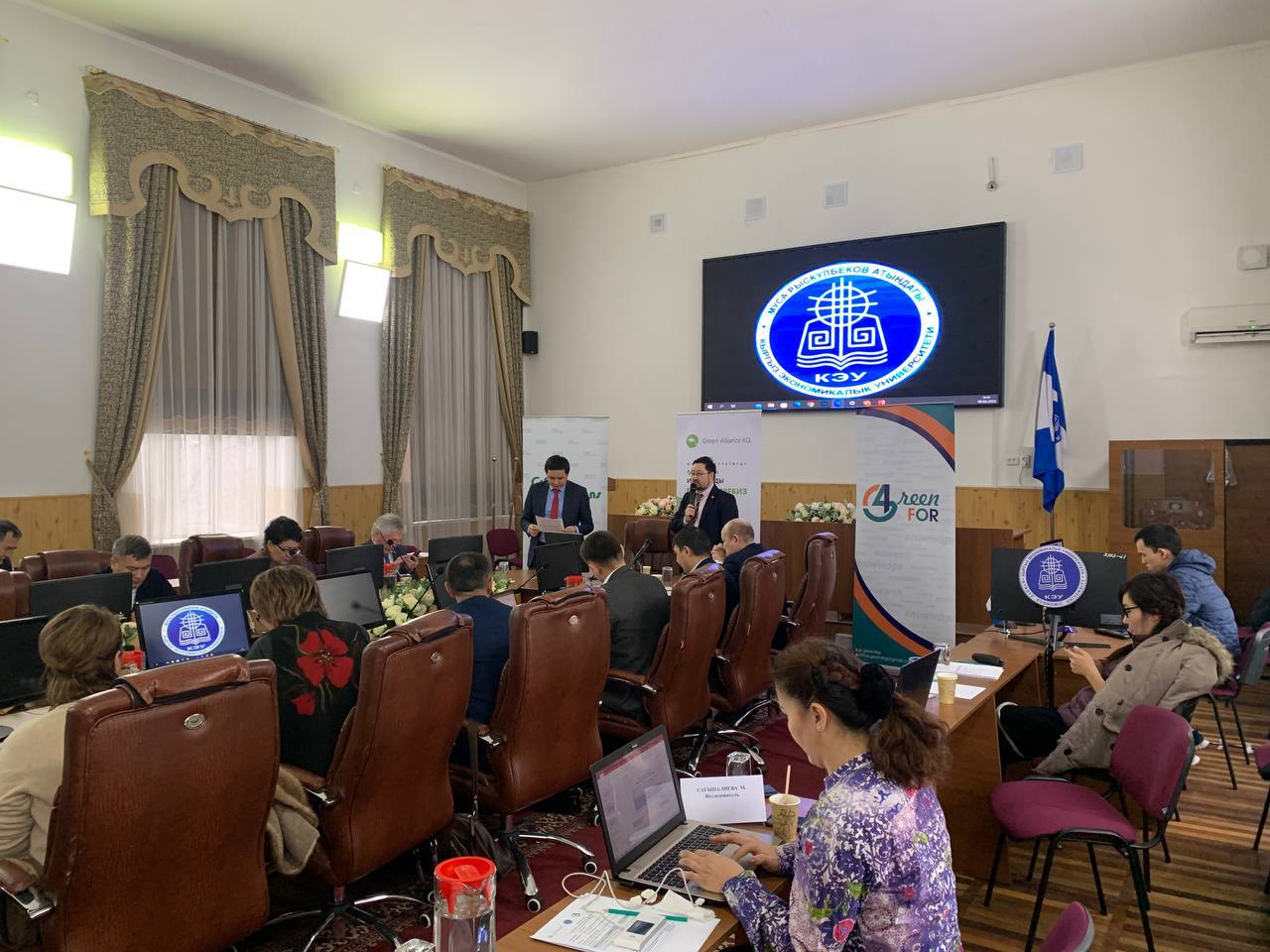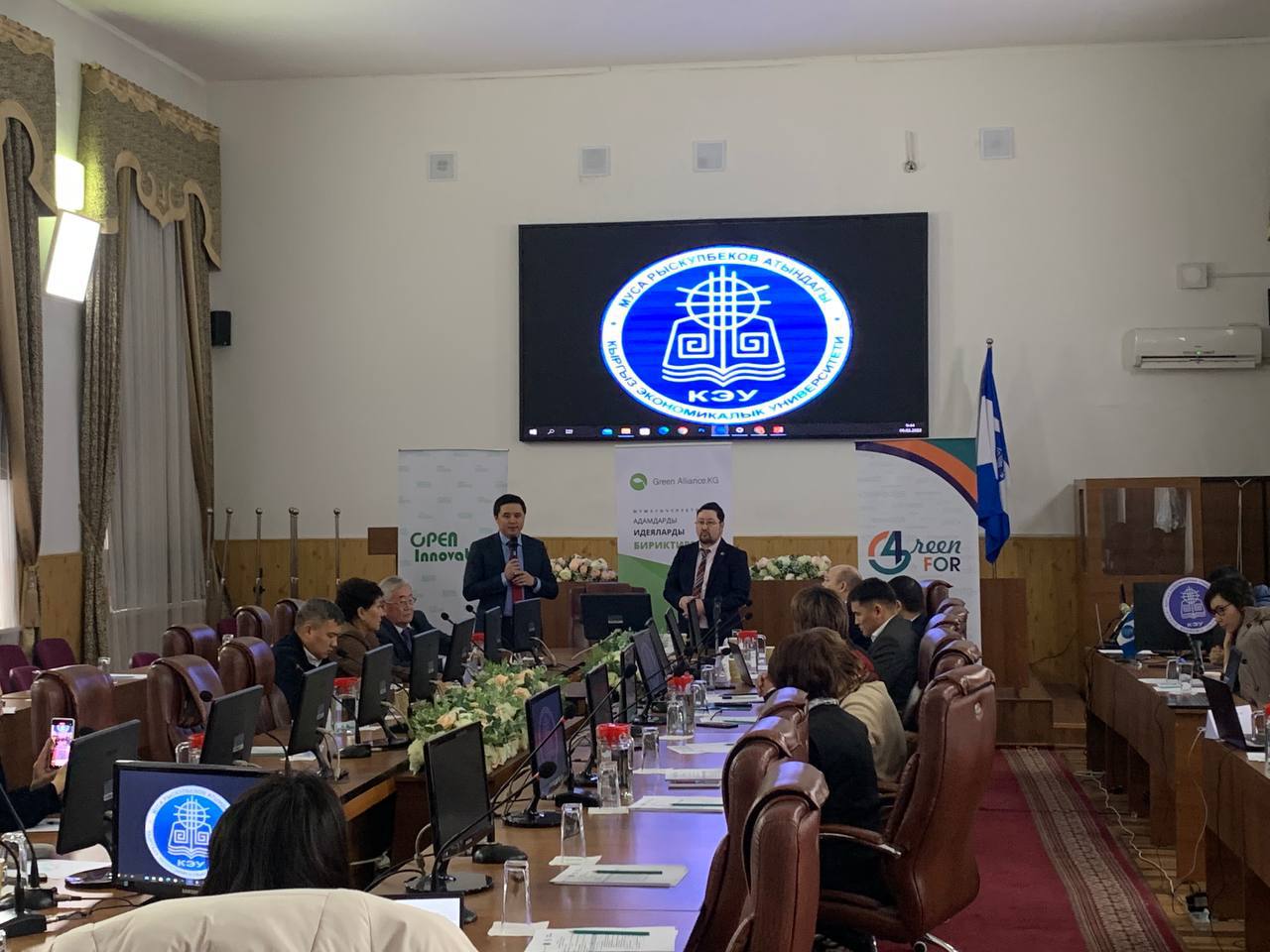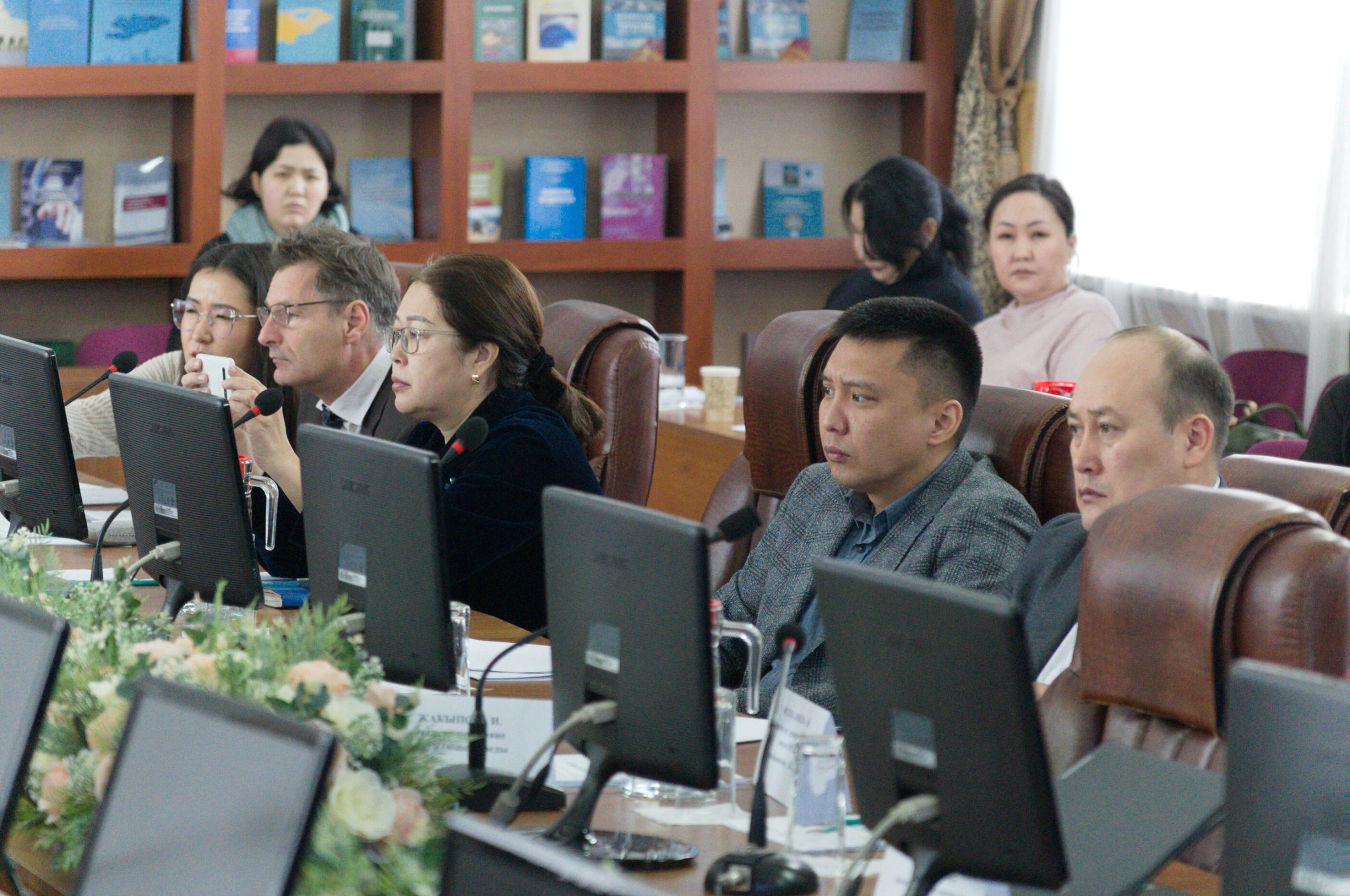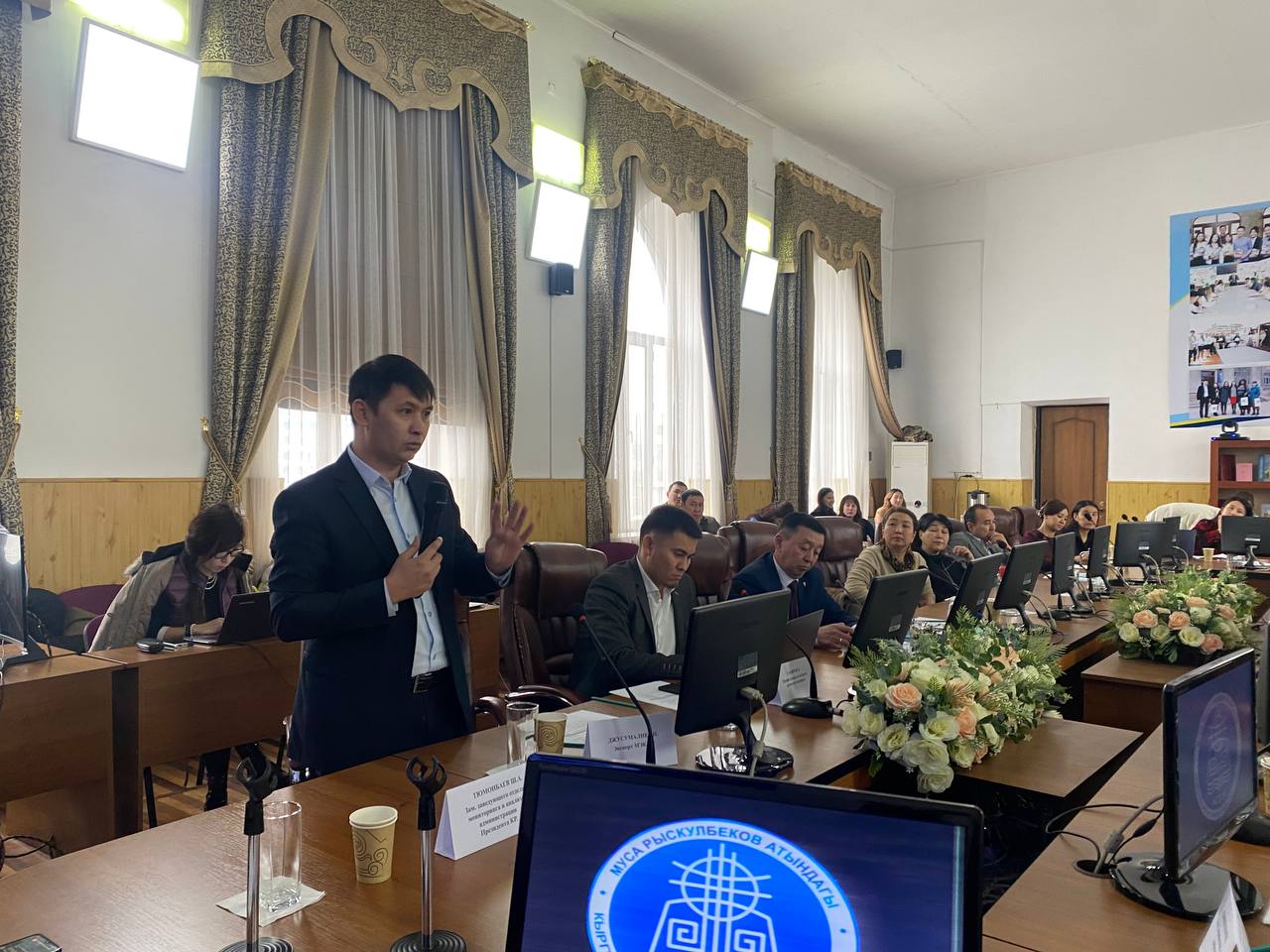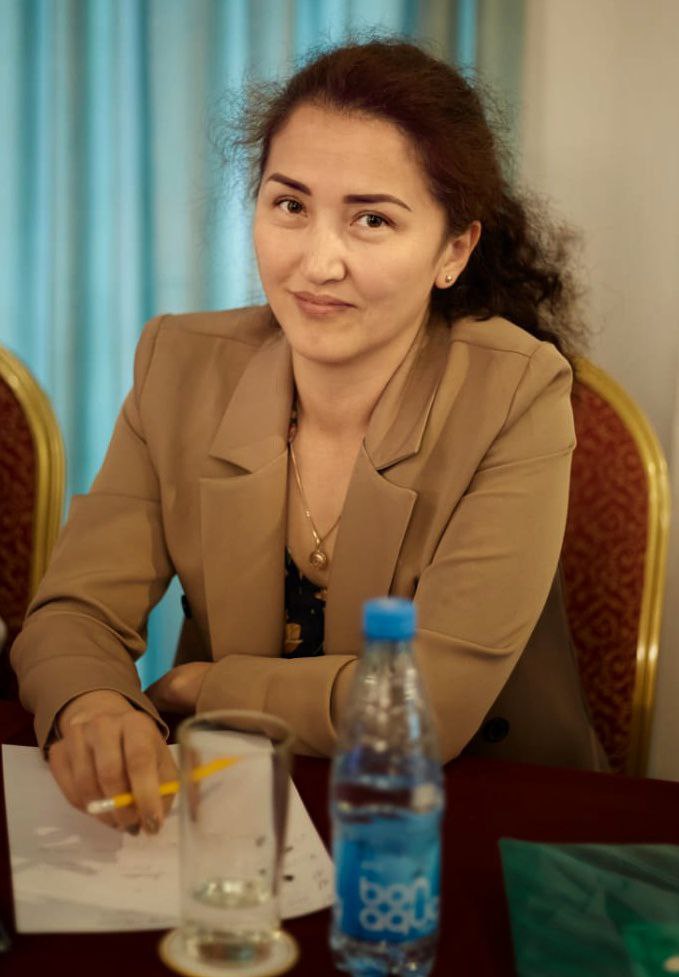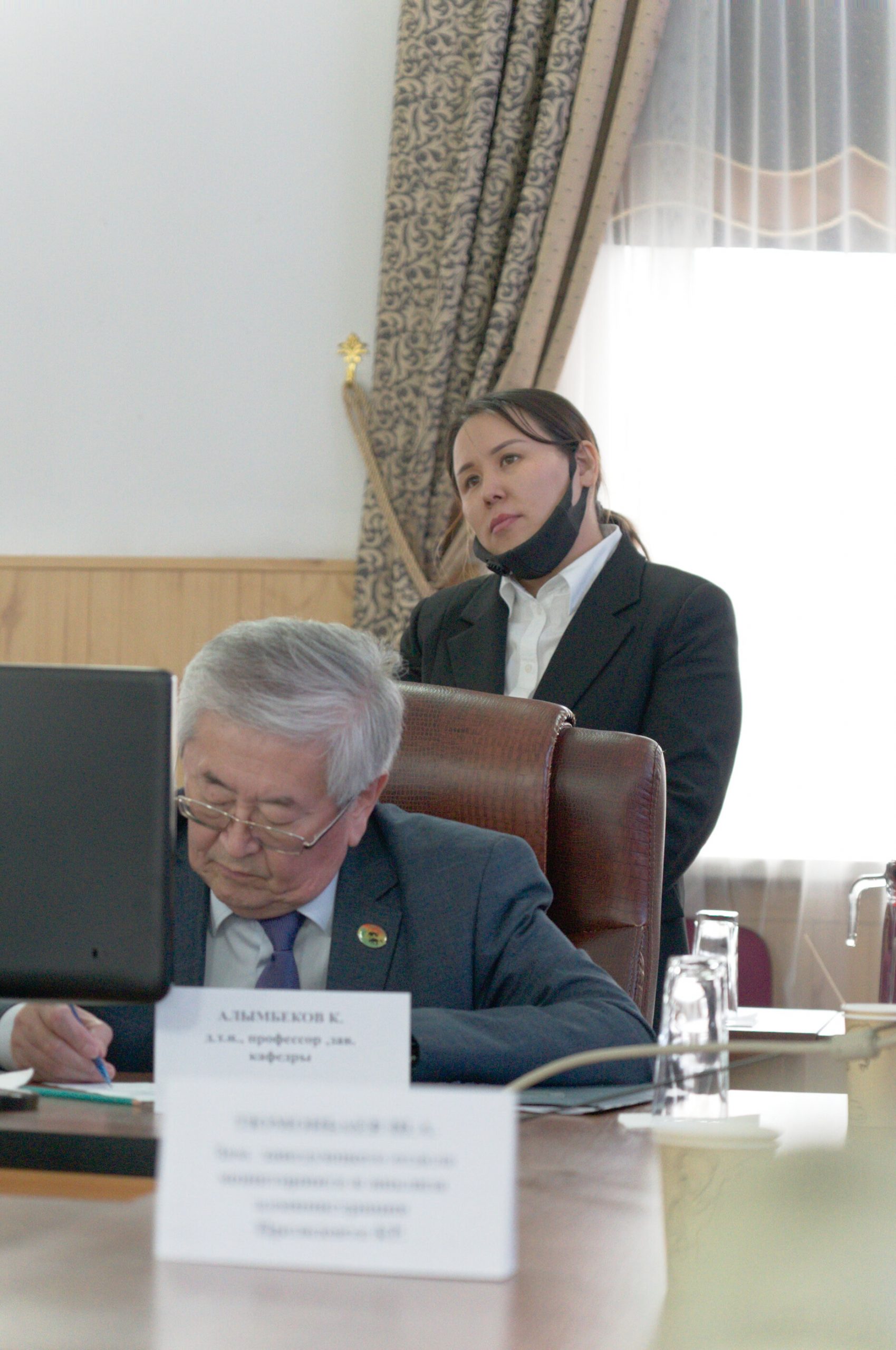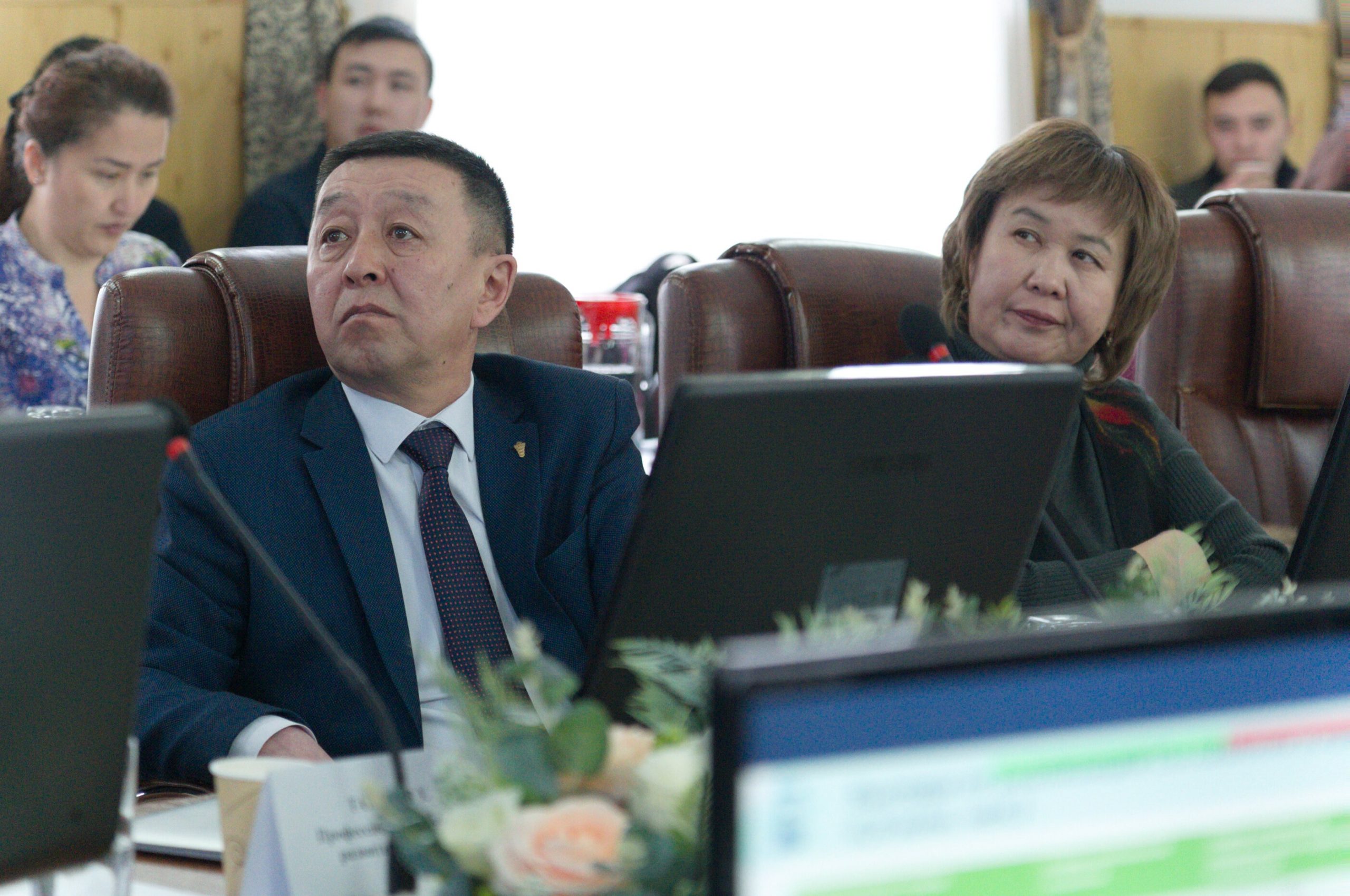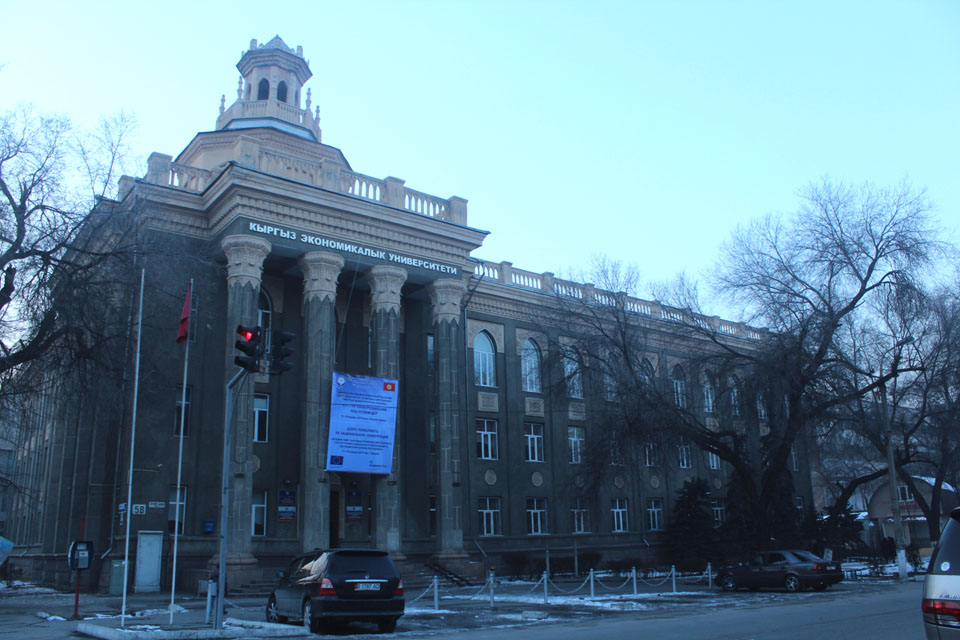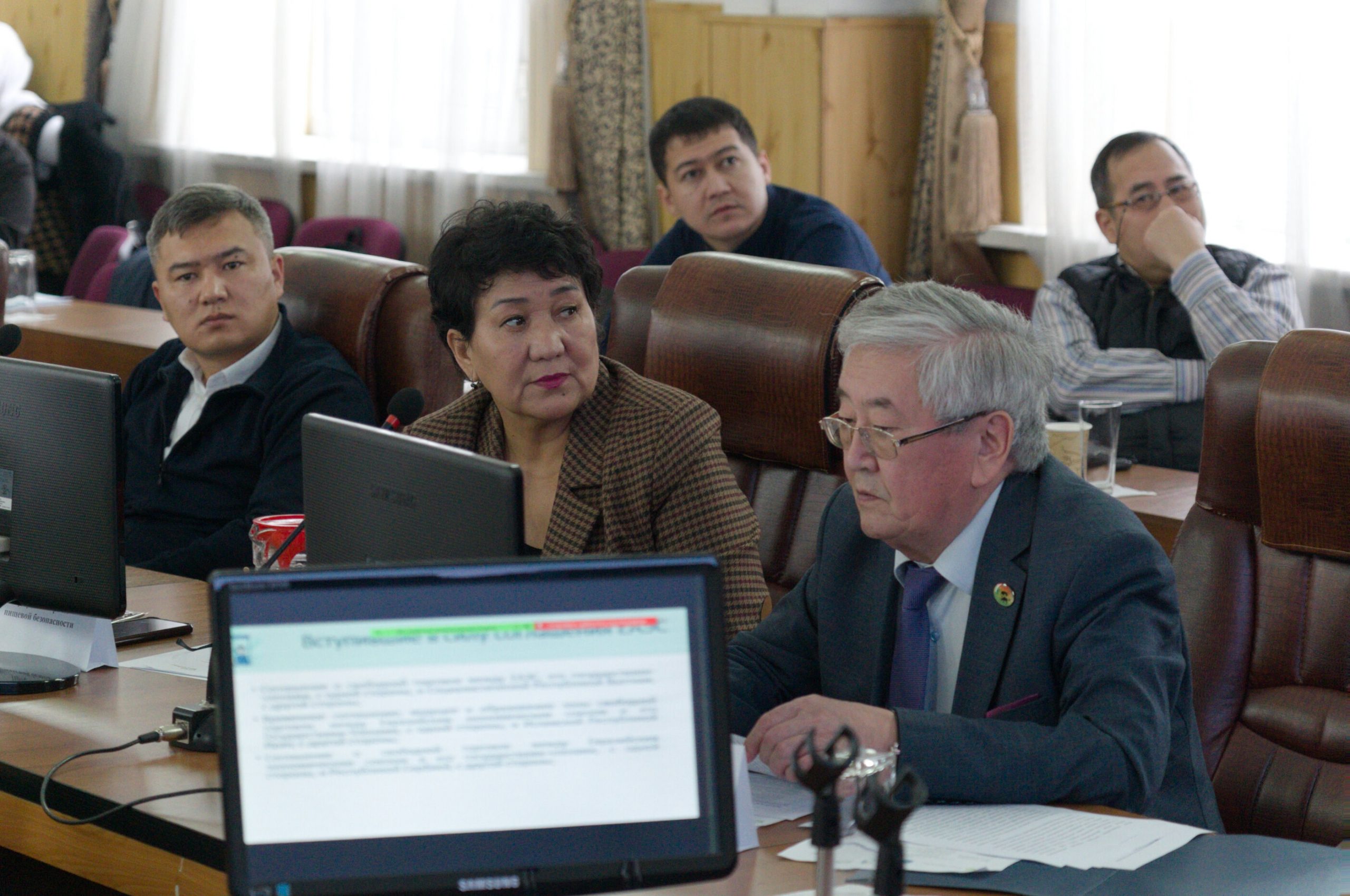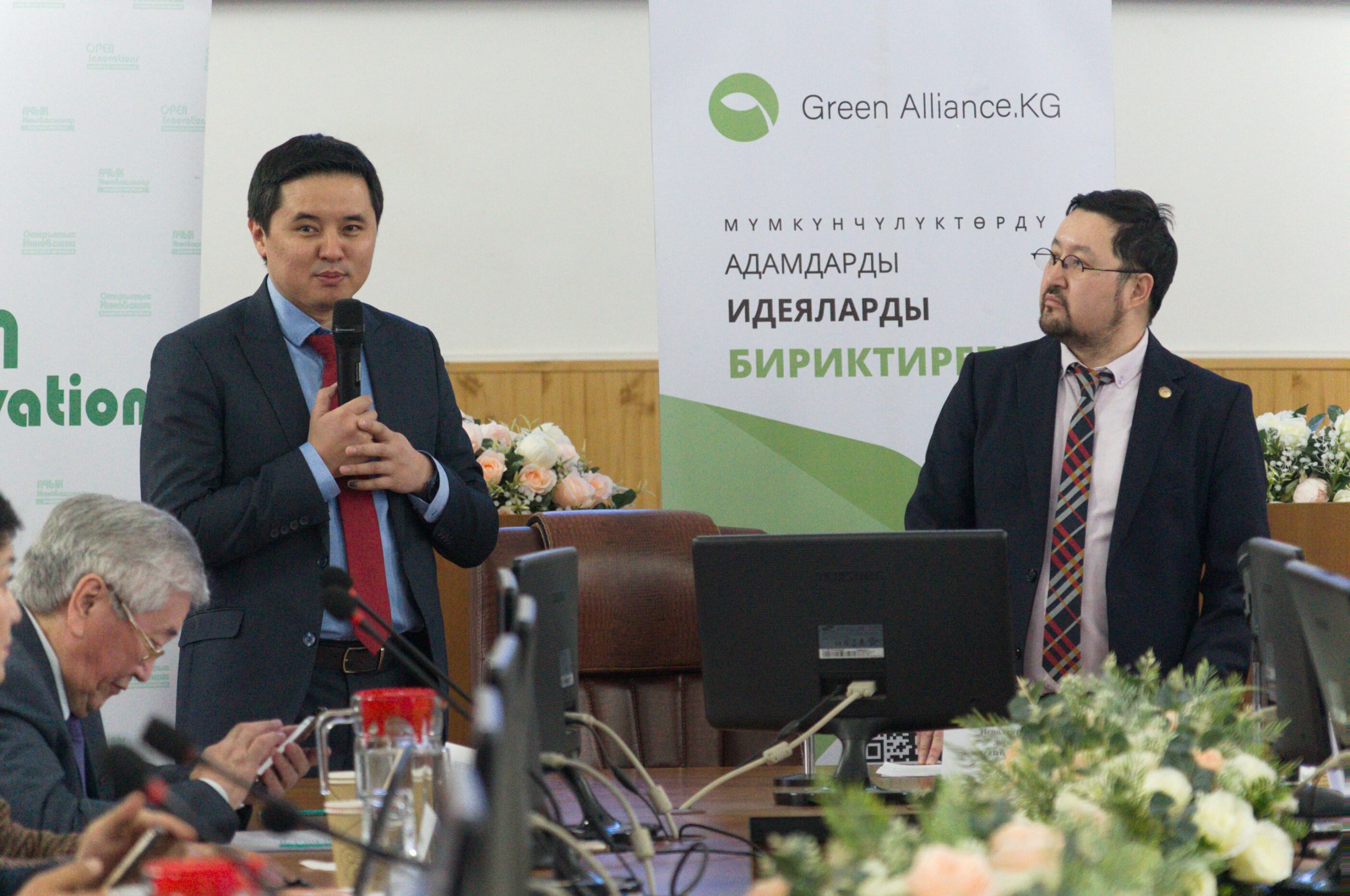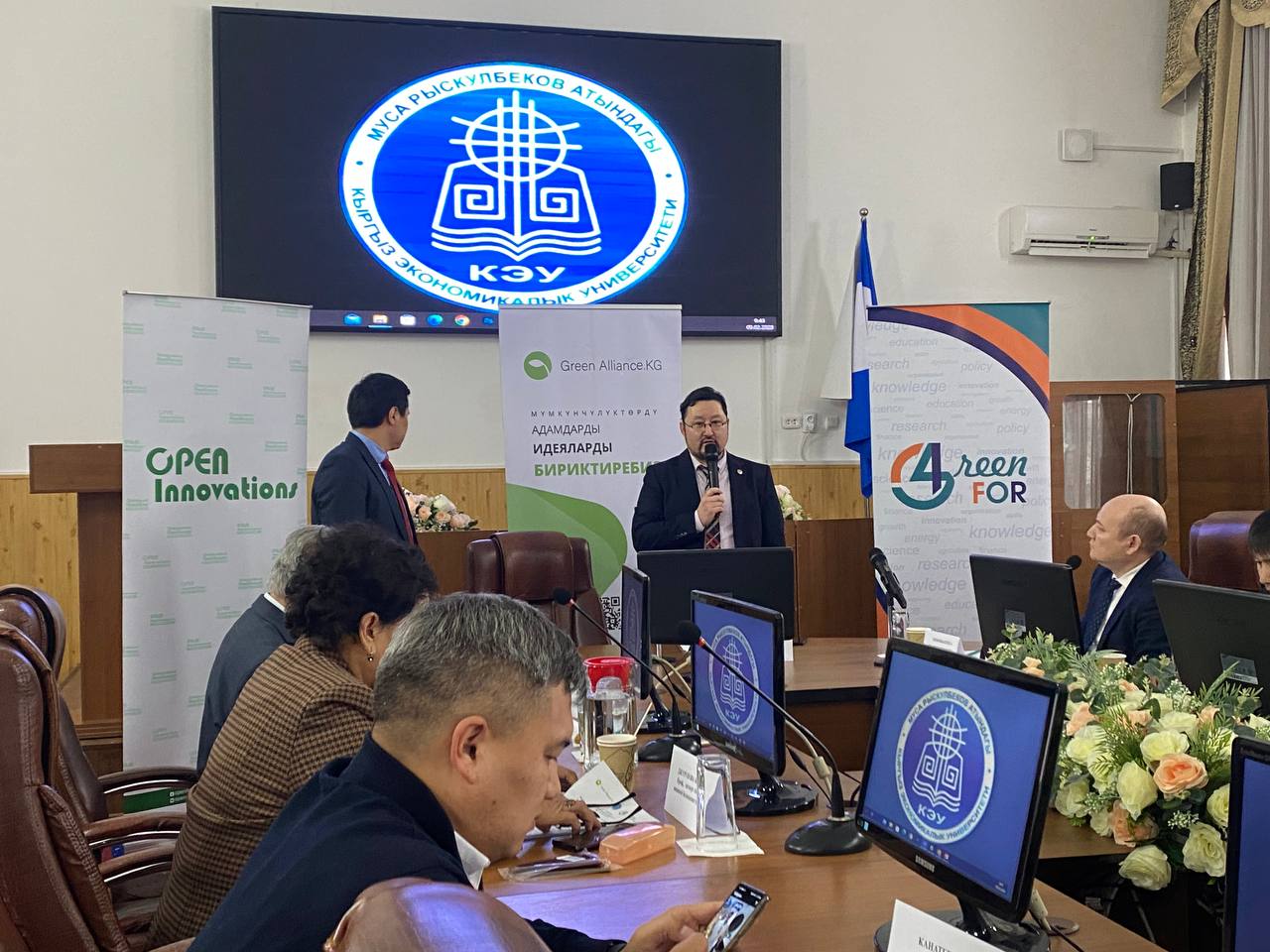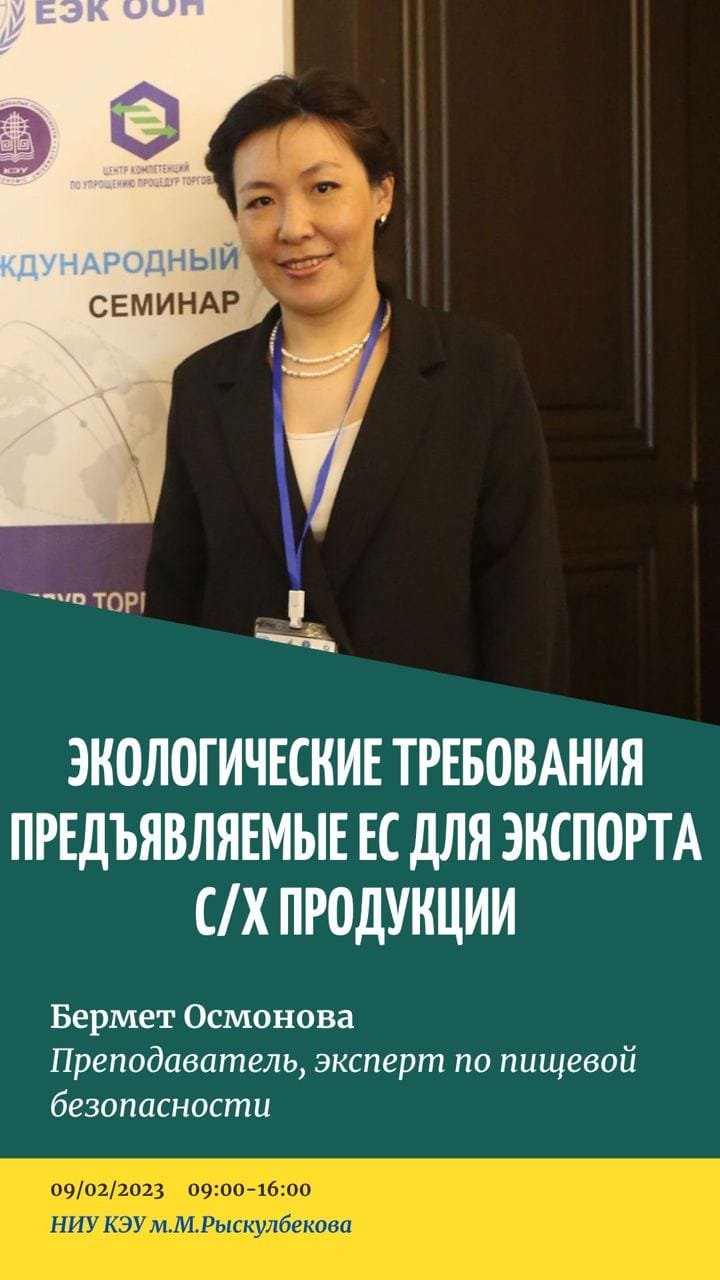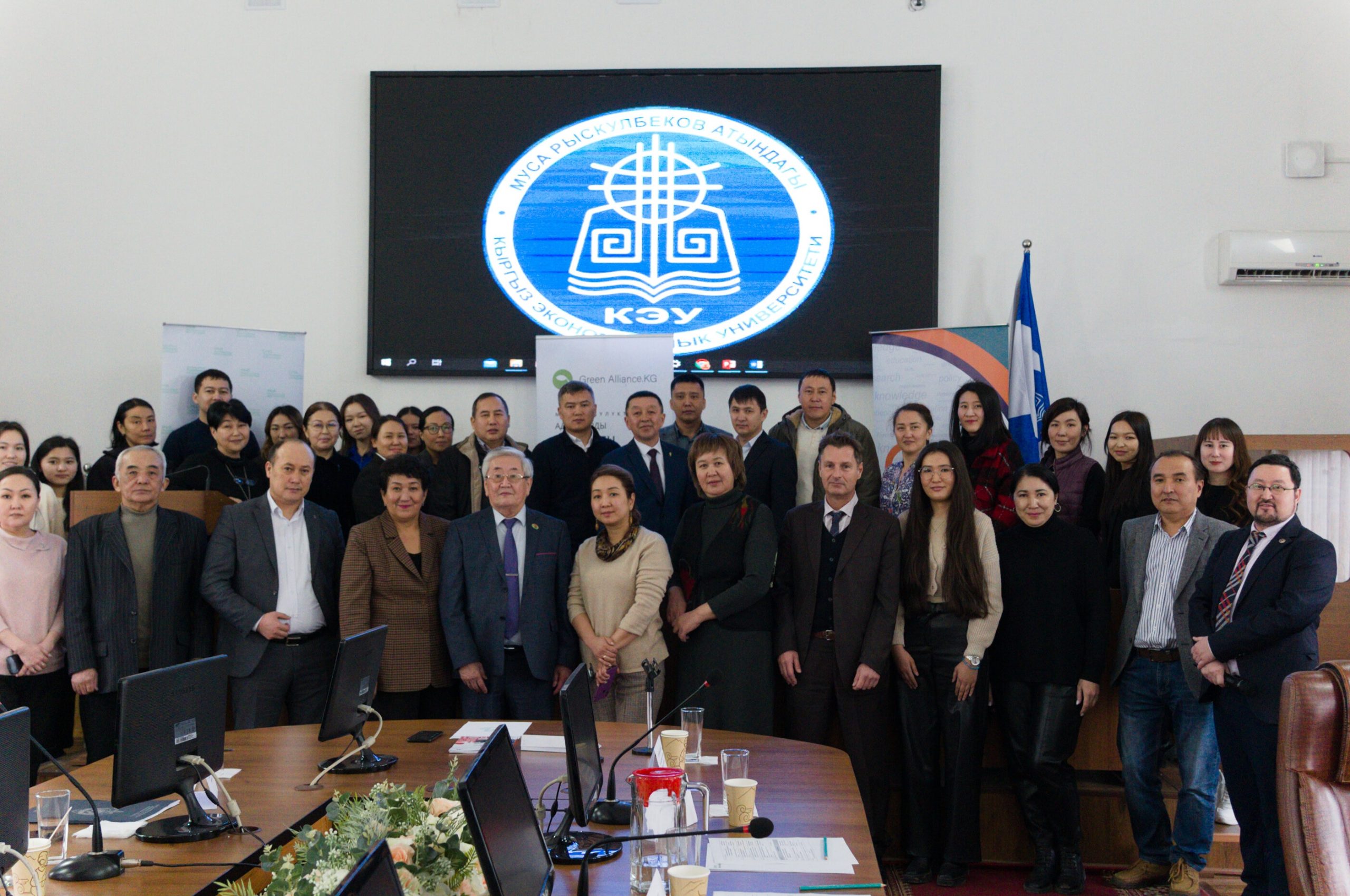
Promotion of GSP+ (Generalized Scheme of Preferences Plus):
Environmental and economic sustainability
by Green Alliance KG and Open Innovations
Green Alliance KG and Open Innovations together with Green4 held a Hybrid Roundtable on February 9, 2023 titled: “Promoting GSP+ (Generalized Scheme of Preferences Plus): Ecological-Economic Sustainability” at the Research and Development University “Kyrgyz Economic University named after. M. Ryskulbekov”.
The event was attended by representatives of the Presidential Administration of the Kyrgyz Republic, the European Union delegation to the Kyrgyz Republic, Ministry of Economy and Commerce of the Kyrgyz Republic, Ministry of Agriculture of the Kyrgyz Republic, Chamber of Commerce and Industry of the Kyrgyz Republic, banks, Association of Forest and Land Users of Kyrgyzstan, as well as professionals in export development, experts on environmental protection, Association of Universities for Green Economy and Sustainable Development. More than 40 participants from all regions of the country joined the online mode via zoom in.
The GSP+ program remains a priority for all stakeholders, but it is not realized to the full and appropriate extent by domestic companies and farmers-producers since obtaining the GSP+ status in 2016. Accordingly, with a comprehensive and effective implementation of this program, the following positive results can be achieved:
- Increase exports of agricultural products;
- Improving the quality and safety of food products both in the domestic and foreign markets of the country;
- Development of rural areas (more than 60% of the population of the Kyrgyz Republic lives in villages);
- Monitoring of environmental requirements in the implementation of the program;
- Respect for human rights: fair access to and equitable use of the country’s natural resources;
- Environmental rights of producers and consumers;
- Increasing the country’s investment attractiveness in the region, opening new production and export facilities and creating new jobs;
- Increasing the country’s competitiveness;
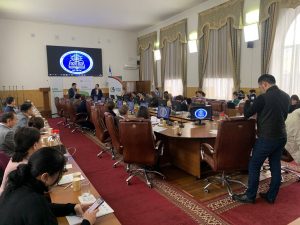
Kadyraliev Almaz, Rector of Kyrgyz Economic University (KEU) opened the event speaking on the opportunities and necessity of cooperation between practitioners and theoreticians, between universities and experts and professionals in the field of trade. The Center for Trade Facilitation was opened at Kyrgyz Economic University with the assistance of the UNECE, which shows the potential of KEU to promote and simplify export-import activities in the country.
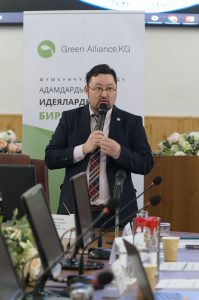
The moderator of the roundtable, Ilgiz Kambarov, Executive Director of the Green Alliance KG, outlined the purpose of the event as the need to resume the discussion on GSP+ among all stakeholders and to raise the awareness of farmers and exporters in the country about the features and opportunities to enter markets of the European Union while taking into account environmental, ecological and rule of law issues.
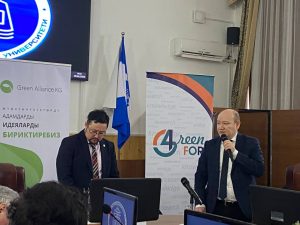
Shaazadan Tyumonbaev, deputy head of the reform monitoring and analysis department of the presidential administration, stressed that since January 26, 2016, the European Union (EU) granted GSP+ status to Kyrgyzstan. On the one hand, this status gives producers easier access to new markets on the European continent, and on the other hand, all GSP+ preferences are related to the rule of law, human rights and international treaties. Since our trade balance is negative, it is very important for Kyrgyzstan to use GSP+ as an access to the guaranteed market of the European Union for domestic producers.
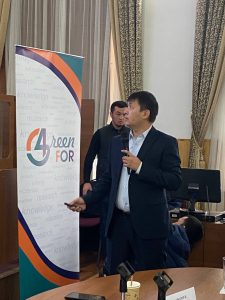
Nurlan Djusumaliev, expert of the Trade Policy Department of the Ministry of Economy and Commerce, reminded that the EU special scheme to promote sustainable development and good governance (GSP+) is part of the EU unilateral preferences for developing countries under the Generalized Scheme of Preferences (GSP) and allows access of goods to the EU (446 million) at preferential customs duties. He also stressed that Kyrgyzstan is obliged to maintain the requirements for safety, quality, packaging, labeling of goods, and products exported to the territory of the EU countries must necessarily confirm their compliance with documents. Also, the origin of goods imported to the EU market must be confirmed in accordance with the rules for determining the country of origin of goods for GSP+.
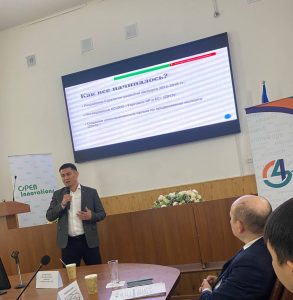
Urmat Takirov, trade development professional and GSP+ expert, stressed the importance of complying with each step and technical procedures and requirements of GSP+. Accessing the European market with a population of over 450 million people is not an easy process and requires improvement of technical and material base, production process, accounting logistics, branding of goods and much more. He recalled that the GSP+ is in force since 2016 and includes compliance with 27 conventions, with reduced duties on goods, including sensitive, i.e. 6200 items, which is 66% of EU tariff lines. Urmat Takirov added that since January 1, 2020, the REX system, which provides for certification of origin for imports to the EU, Norway, Switzerland and Turkey from certain countries under the Generalized Scheme of Preferences (GSP+), has been implemented. The operator in Kyrgyzstan is the National Investment Agency under the President of the Kyrgyz Republic.
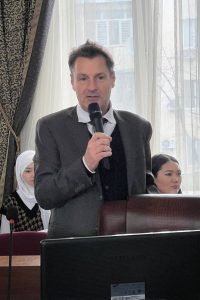
Mr. Stefano Corrado, representative of the European Union Delegation to the Kyrgyz Republic, emphasized that the EU is ready and continues its assistance to local producers and exporters to enhance their technical and professional capabilities through online educational platforms. It also created a trade portal under GSP+, which provides useful information for companies and producers on the standards that need to be taken into account when exporting.
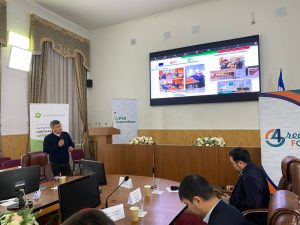
National Project Consultant, Nasyr Kanatbekov, representing the Association of Forest and Land Users of Kyrgyzstan, shared practical experience in exporting dried fruits, nuts, capers, wild apples, pistachios, beans and other forest products to the European Union market. Nasyr Kanatbekov also spoke about Certification of products according to international standards, and promotion of forest and agricultural products in 3 countries, Uzbekistan, Tajikistan and Kyrgyzstan. Covering Batken, Jalal-Abad, Osh and Talas regions, the Association of Forest and Land Users of Kyrgyzstan works to improve the productive and export potential of around 4,000 farmers and forest owners, 80% of whom are women, which is a important example of gender balance mainstreaming.
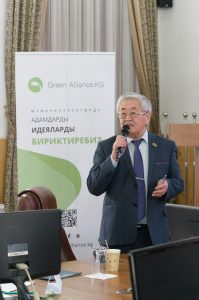
In his turn, Professor Keneshbek Alymbekov, Doctor of Technical Sciences, head of department at KEU, Corresponding Member of the Kyrgyz Engineering Academy, recalled the prerequisites and conditions for the implementation of the GSP+ program in Kyrgyzstan, which consisted of economic, environmental and superstructure components.
Professor rightly noted the problems of GSP+ implementation in the Kyrgyz Republic, highlighting the research, testing and human resources challenges to ensure environmental and economic sustainability, which lead to delays in the implementation of obligations under the program. Among other ways of solving problems to achieve environmental and economic sustainability of the GSP+ program implementation in the Kyrgyz Republic, Keneshbek Alymbekov proposed the following: 1) Creation of an interdepartmental, inter-university consortium for joint research, testing, promotion, monitoring of quality and safety of environmentally priority for the European Union market; 2) Implementation of training of qualified specialists in the field of product quality, safety and traceability throughout its life cycle through educational programs -DPO, SPO, VPO and PVO; and 3) Conducting systematic information and educational work on the basics of green economy, ecosystem, biodiversity, organic
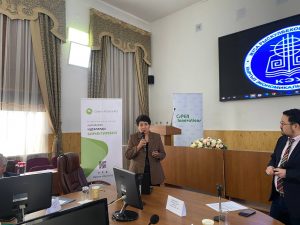
PhD in Technical Sciences, Professor, FSSC 22000 (IRCA) auditor at Kyrgyz Economic University Dzhurupova Bermet spoke about the role of food safety system in GSP+, recalling that the state and industry are jointly responsible for ensuring food safety. In particular, she highlighted the differences in the approach to food safety in the EU and EEC, the requirements for economic entities in the food sector, and how the principles of HACCP are used. The problems, according to her, remains in the absence of both a single state body in the field of food safety control/supervision, and a single state body in the field of food safety control/supervision.
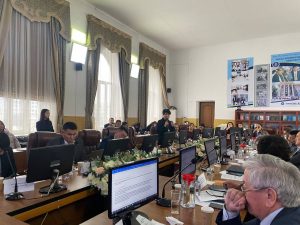 Environmental expert from “ECOIS-Bishkek” NGO, Indira Zhakypova, touched upon the issue of implementation of environmental conventions, drawing attention to the Stockholm Convention. One of the main requirements for obtaining the status of a user of the EU Special Scheme for the Promotion of Sustainable Development and Good Governance (GSP+) is the ratification of 27 international treaties (UN/ILO conventions). These conventions deal with human rights, labour law, the environment, climate change, good governance. The expert also gave a number of recommendations to address the problems, such as the involvement of NGOs, independent experts and the media in activities to raise awareness of consumers on best practices in the use of chemicals, the potential dangers of chemicals to consumers themselves and the environment; exposure routes; increasing public education on chemical safety and in informing about the problems, risks and actions of the government in this area.
Environmental expert from “ECOIS-Bishkek” NGO, Indira Zhakypova, touched upon the issue of implementation of environmental conventions, drawing attention to the Stockholm Convention. One of the main requirements for obtaining the status of a user of the EU Special Scheme for the Promotion of Sustainable Development and Good Governance (GSP+) is the ratification of 27 international treaties (UN/ILO conventions). These conventions deal with human rights, labour law, the environment, climate change, good governance. The expert also gave a number of recommendations to address the problems, such as the involvement of NGOs, independent experts and the media in activities to raise awareness of consumers on best practices in the use of chemicals, the potential dangers of chemicals to consumers themselves and the environment; exposure routes; increasing public education on chemical safety and in informing about the problems, risks and actions of the government in this area.
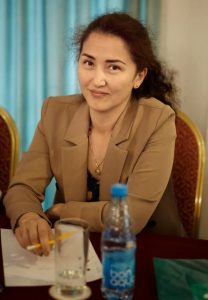
Successful cases and mechanisms of GSP+ implementation were provided by Maral Sagynalieva, researcher of Open Innovations. In particular, she highlighted the key components, which include prioritization, differentiation, quality approach, change agents, and localized systems. The researcher emphasized that change agents are those people whom farmers trust and with whom they regularly interact. High-level transformation goals are only realized in practice when they are effectively translated into smaller changes on farms. Change Agents/Transformation Agents provide critical interactions with farmers.

Nazira Esenalieva, Director of the Department of Science at Ala-Too International University, Coordinator of the Alliance of Universities for Green Economy and Sustainable Development prepared a presentation in which she talked about the importance of cooperation of universities in finding answers to questions in the field of ecology, trade, sustainable development and green economy.

According to Osmnova Beremet, senior lecturer at KEU, environmental and economic sustainability remains an important issue and there is room to grow, with Germany remaining the main importer to the EU of both dried fruit (25.8%) and walnuts (30.3%).
The round table showed an increased interest and relevance of the issue, as it was held in a spirit of active discussion and exchange of views. Private entrepreneurs provided their examples and asked pressing questions from the experts. Questions also came from online participants, which were voiced during the round table.
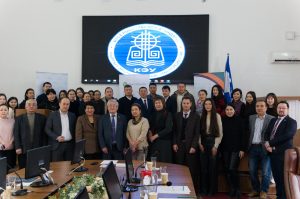
The Executive Director of the Green Alliance KG, Ilgiz Kambarov, concluded that the development of a long-term and sustainable policy to promote GSP+ on relevant platforms to really improve opportunities for domestic producers and exporters and other stakeholders is needed. He also emphasized that the mission of the Green Alliance KG is to raise awareness of environmental issues in all sectors of the economy, be it trade or agriculture.
Disclaimer: This publication was prepared as part of the project “Commitment to Climate Protection in Kyrgyzstan and Eastern Europe, Caucasus and Central Asia”, implemented by “Move Green” NGO, funded by the international agency “Bread for the World”. Opinions, conclusions and opinions expressed herein are those of the authors of Green Alliance KG, Open Innovations and Green For and do not necessarily reflect the views of Bread for the World.
